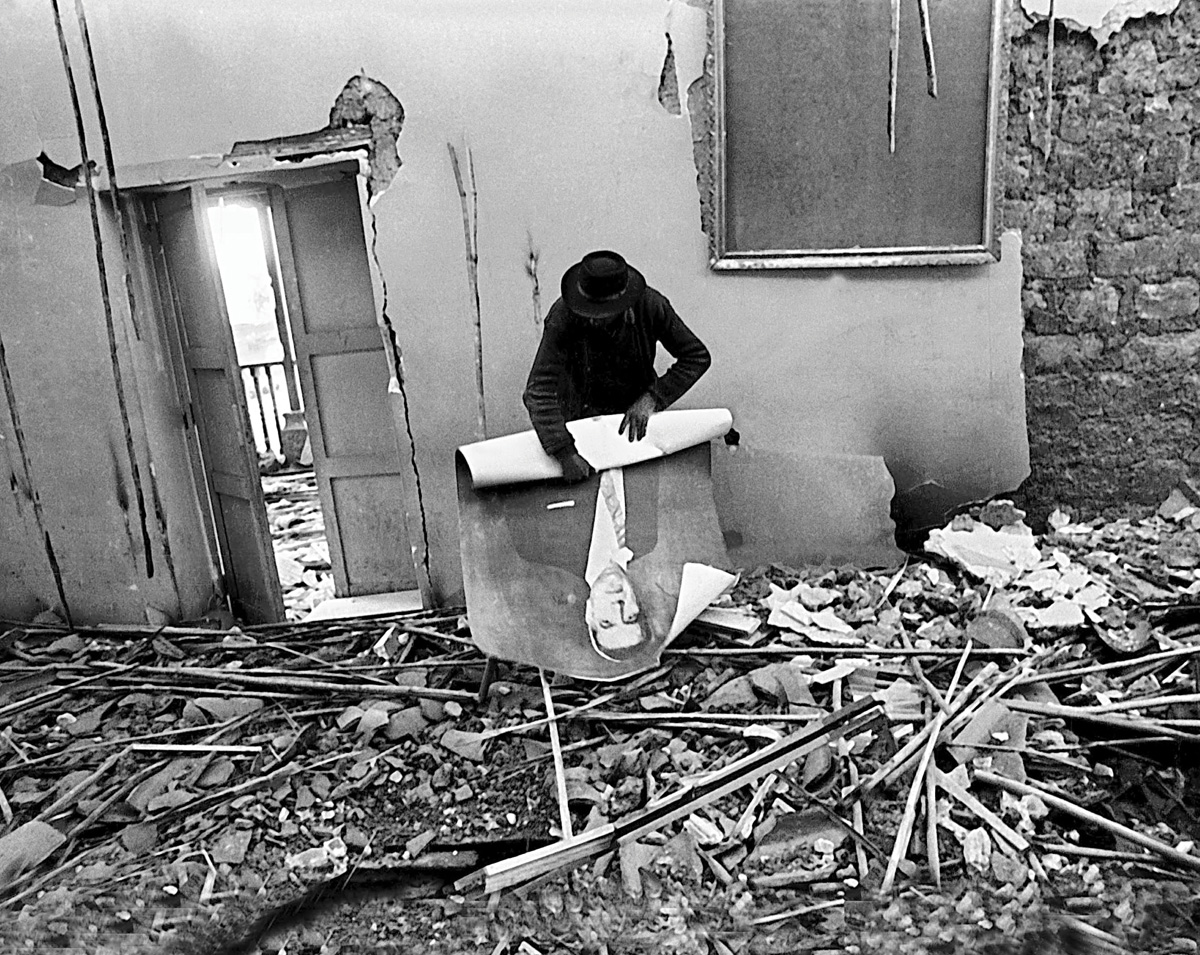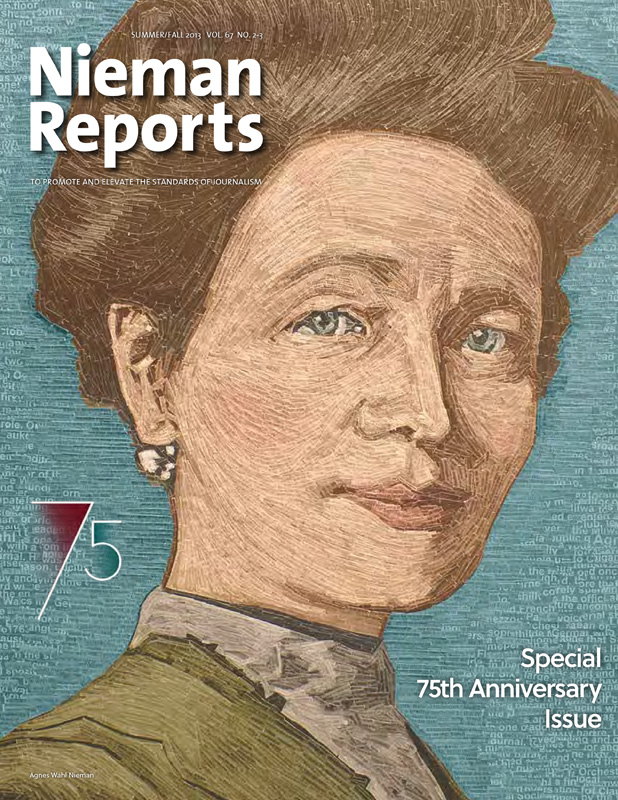
A portrait of Peru’s president is recovered from the rubble after a Shining Path attack on a government building in 1982
For his reporting on the Peruvian government, Gorriti was forced into exile. He didn’t fare much better in Panama, where he angered the government with more reporting on corruption
 As a willingly overworked journalist covering, among other things, the Shining Path insurgency for Caretas magazine, Peru’s newsweekly, I arrived in Cambridge looking forward to nine deadline-free months. I thought I would write a book about the insurgency, so brought a trunkful of documents. In one of my first conversations with him, Howard Simons persuaded me not to do work on the book. “Use Harvard,” he said. “You’ll have the chance to write the book later, but you won’t have a second Nieman year.” He was, of course, right, and I just plunged into the intellectual plenty that the Nieman Fellowship offered.
As a willingly overworked journalist covering, among other things, the Shining Path insurgency for Caretas magazine, Peru’s newsweekly, I arrived in Cambridge looking forward to nine deadline-free months. I thought I would write a book about the insurgency, so brought a trunkful of documents. In one of my first conversations with him, Howard Simons persuaded me not to do work on the book. “Use Harvard,” he said. “You’ll have the chance to write the book later, but you won’t have a second Nieman year.” He was, of course, right, and I just plunged into the intellectual plenty that the Nieman Fellowship offered.
I went back to Peru with my trunkful of unopened documents, to what was a chaotic, traumatized country. Within days, I was covering the bloody government suppression of prison riots organized by Shining Path inmates, in which about 250 prisoners were killed. I remember feeling the brutal contrast between life around 1 Francis Ave. and the lethal irrationality I was now witnessing. At the same time, though, I felt that however much I missed the Nieman experience, it had strengthened my vision and resolve about what thorough, uncompromising journalism meant for my then wounded country. That vision and resolve helped me navigate some difficult times, unfailingly bringing to mind the Nieman Fellowship and our admirable curator and de facto rabbi, Howard Simons.


